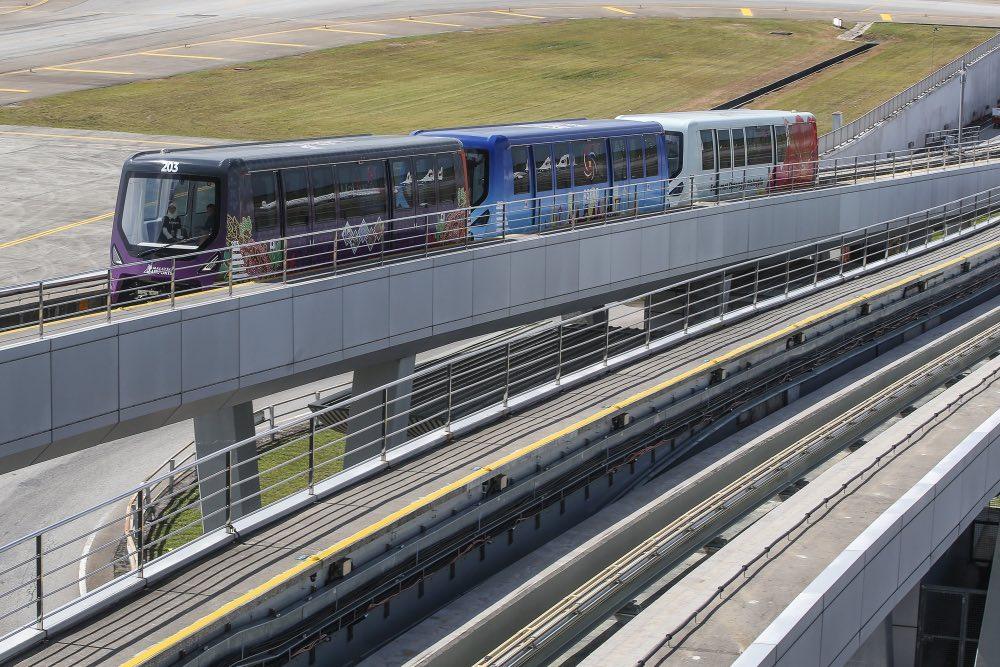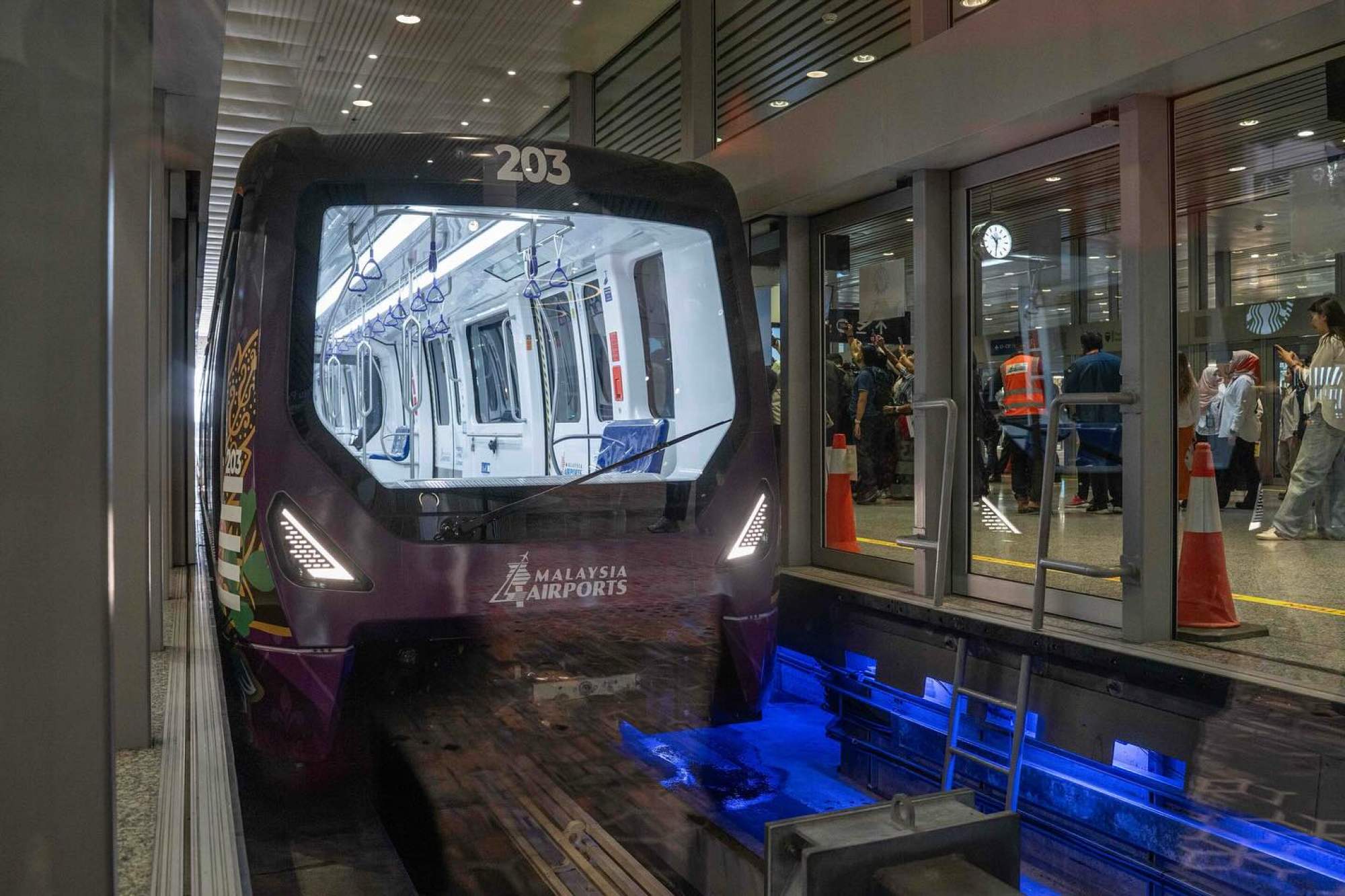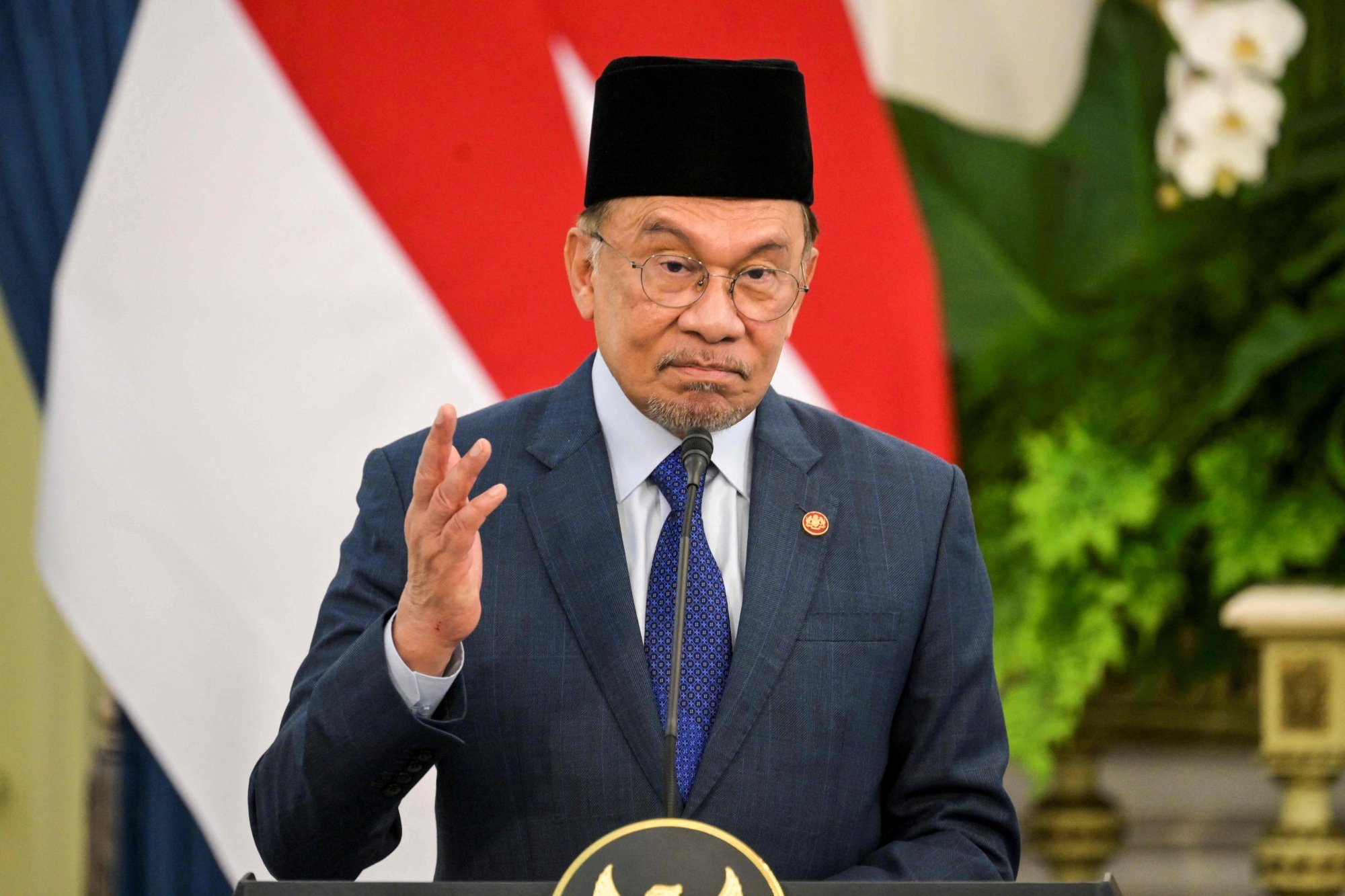Kuala Lumpur’s Aerotrain suffers double trouble after US$100 million relaunch
Kuala Lumpur’s Aerotrain, relaunched a week ago after a test ride by the prime minister, has already suffered two service disruptions, including one from flooding

Malaysia’s long-delayed Aerotrain at Kuala Lumpur International Airport (KLIA) has suffered fresh embarrassment after experiencing two service disruptions within three days, just a week after its US$100 million relaunch and a test ride by Prime Minister Anwar Ibrahim.
The most recent incident occurred on Friday morning, when a flooded tunnel forced Malaysia Airports Holdings Berhad (MAHB) to temporarily halt the 1.2km (0.75 miles) rail service linking the main terminal to its international satellite gates.
MAHB blamed pump failure during heavy rainfall for the flooding, saying the line was shut “as a safety precaution” while workers manually cleared the water.
Train operations resumed after about 90 minutes, but not before irate passengers were again shepherded onto shuttle buses – a frustrating return to arrangements that had been in place since the Aerotrain service was suspended in early 2023.

The outage triggered criticism from Malaysia’s vocal social media users, who shared photos of their experiences taking buses to travel between terminals.
“I expected it, but so soon?” Ashish Kale wrote in a post from the airport bus terminal.
Friday’s interruption was the second viral incident involving the Aerotrain this week. On Wednesday, passengers shared photos of a train stranded at the platform after one of its doors had become stuck open.
Airport sources said the incident was caused by a passenger obstructing the door, which triggered a safety mechanism requiring a manual reset.
“That’s all – there is nothing wrong with the train,” one source, who asked not to be named, told This Week in Asia.
The incidents dealt a blow to the airport’s image, coming just a day after Prime Minister Anwar Ibrahim tested the service during an airport tour with Transport Minister Anthony Loke.
“Good … faster than before,” Anwar said of his ride.

Loke had earlier defended the project’s multiple delays, stressing that the government would not approve operations until all safety protocols had been fully verified.
“Who would be responsible if I opened the service without all the proper tests being conducted?” he said, stressing that the government’s priority was safety.
“As much as I want it to be operational as soon as possible, safety and comfort must come first.”
KLIA serves as Malaysia’s primary airport, accommodating more than 57 million passengers in 2024, making it Asia’s 13th busiest airport. Opened in 1998 as an “airport of the future,” it has frequently faced criticism regarding maintenance issues, including its baggage handling system and congestion at various checkpoints.
The original Aerotrains have been in operation since the airport’s opening, with ageing systems leading to frequent breakdowns and safety concerns, forcing passengers to walk along the tracks.
Situated just 350km (217 miles) away from Singapore’s Changi Airport, KLIA is often compared to its neighbour, which is consistently ranked among the world’s best airports. Changi has topped the charts more than a dozen times in recent years, outperforming airports like Japan’s Haneda and Narita, South Korea’s Incheon, and Hong Kong International Airport. In contrast, KLIA only managed to secure 65th spot in the 2025 rankings.